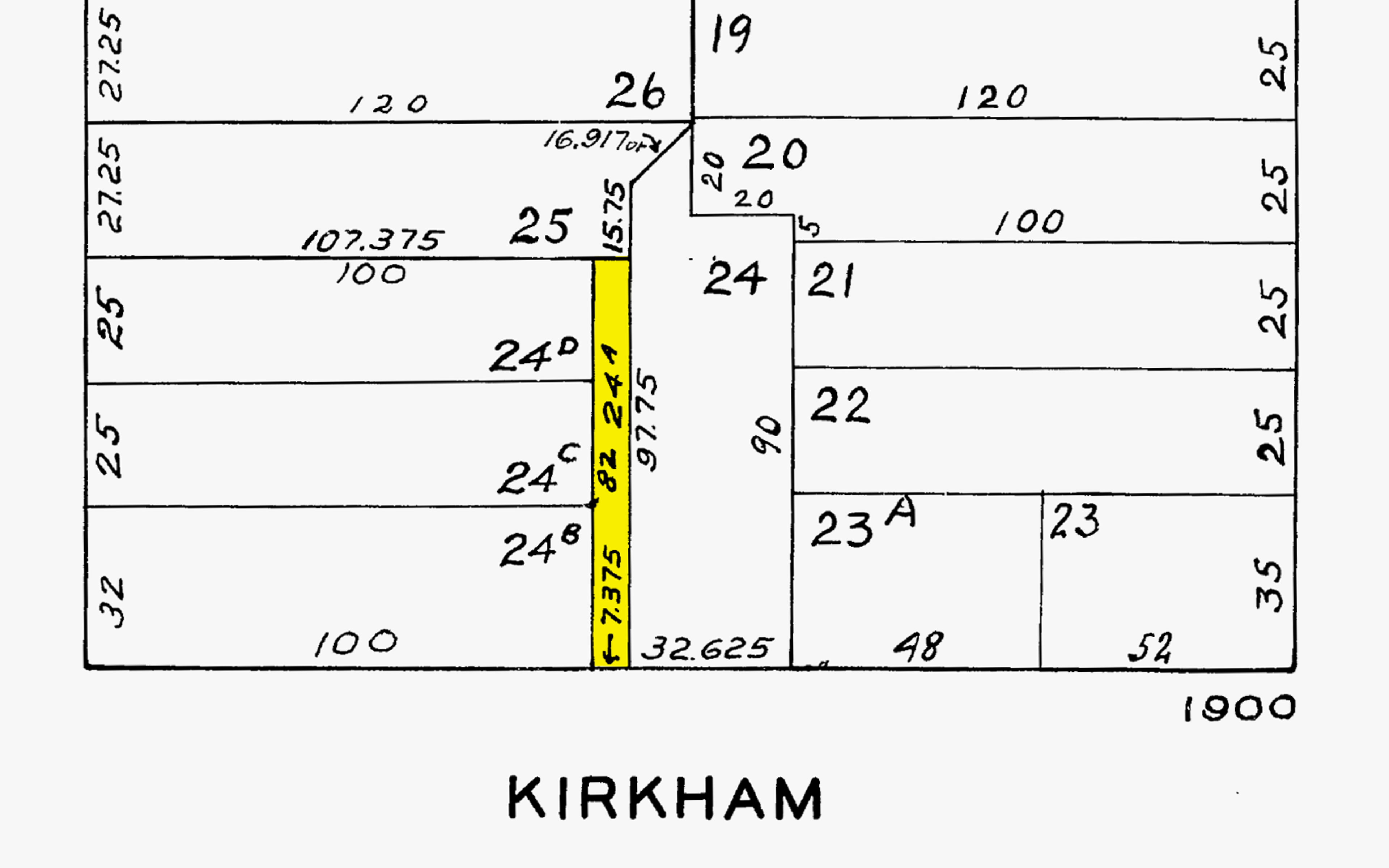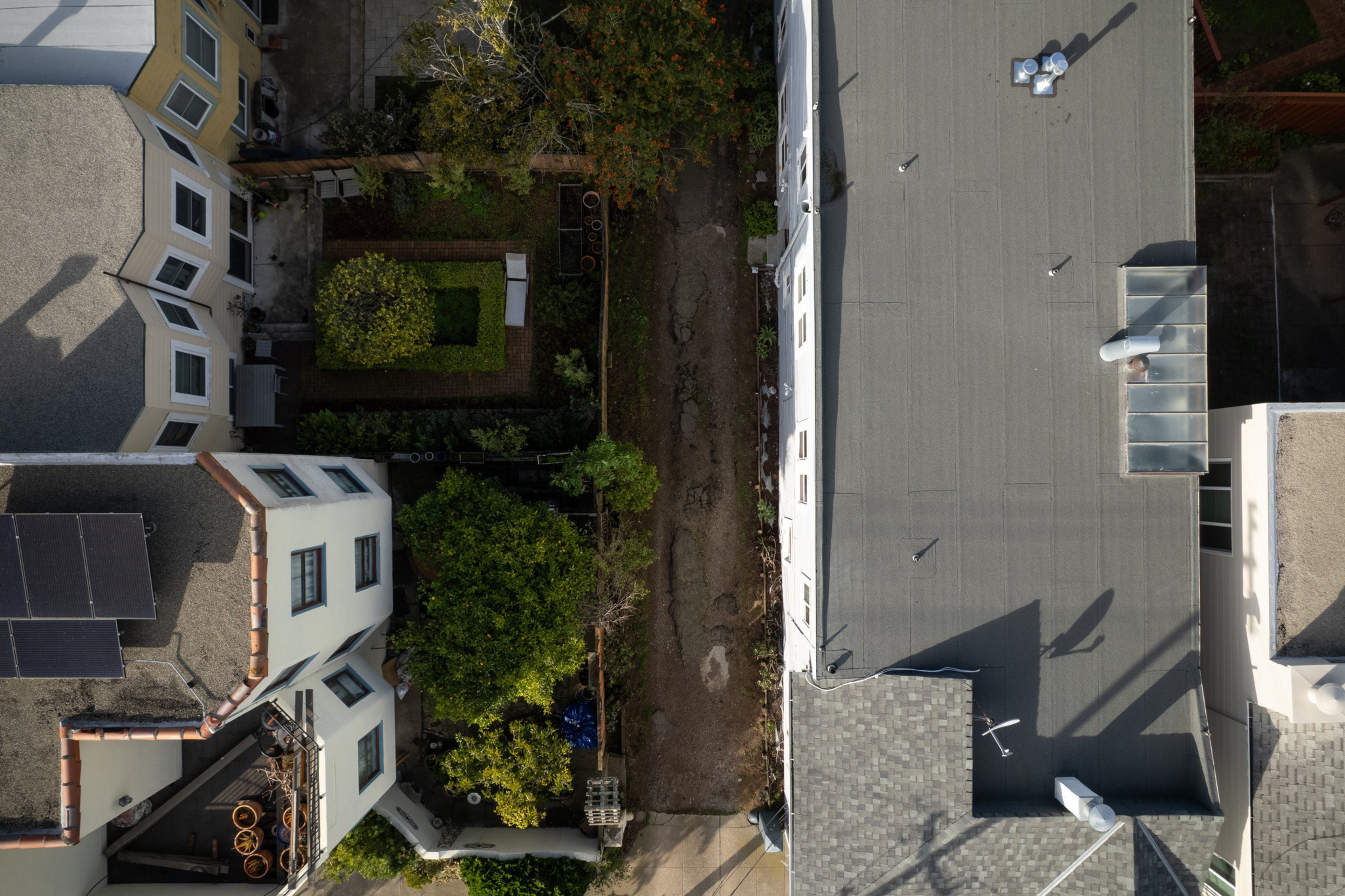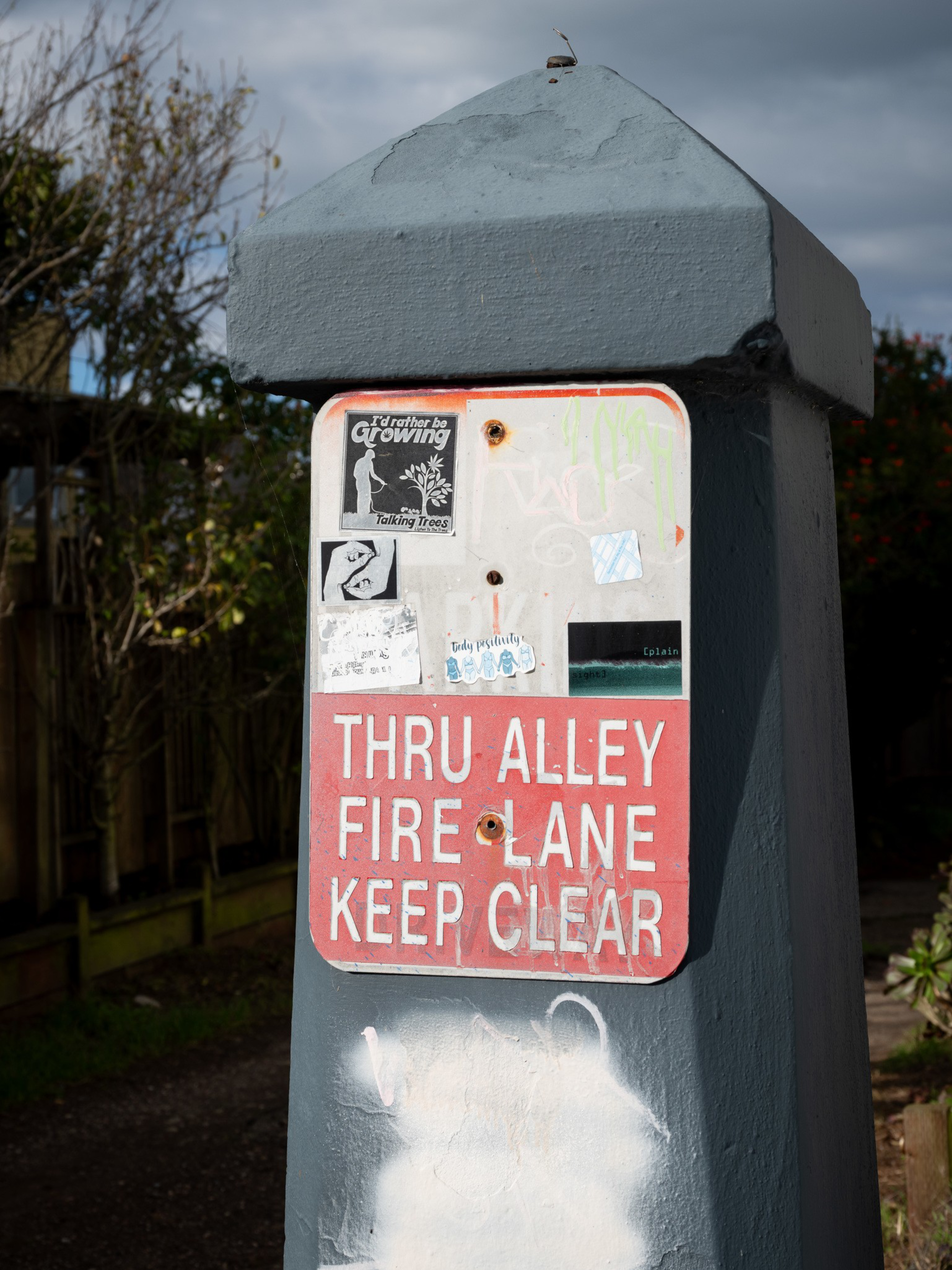For about one month this spring, JJ Hollingsworth and Alemayehu Mergia thought they had bought a $1 million home in the Sunset for a mere $25,000. How did they find themselves in this temporarily euphoric state of mind?
The married couple’s sealed bid for 1926 Kirkham St. had been declared the winner at a May auction held by the San Francisco tax collector for properties with years of unpaid property taxes. The two celebrated with friends and told the longtime tenants of the two-unit building just across an alleyway from their 24th Avenue home that they were the new landlords.
But before they could collect the first rent check, they realized something wasn’t right. The wake-up call came when the city refunded nearly all of the $8,000 they had paid for the transfer tax.
“That’s when I figured it out: I don’t own this house,” Hollingsworth said. “What do I own?”
After checking with a friend who’s a real estate agent, Hollingsworth learned that they had not bought 1924-1926 Kirkham St., a semi-detached rental property with views of the Marin Headlands and the top of the Golden Gate Bridge. They were, in fact, the new owners of an 83-foot-long, 7-foot-wide road called Dirt Alley, complete with views of the two-bedroom, three-bathroom duplex they had hoped to buy.
“How did this happen?” Hollingsworth, 69, thought, followed quickly by, “Why would someone own this?”
They were shocked. Then embarrassed. Then pissed off.


Now the couple, who run a nonprofit music venue out of their home, are trying to get their money back. But it’s not easy, because it requires a vote by the Board of Supervisors to overturn the sale, something that has happened only once before. Plus, the tax collector’s office says it was clear about what lot the couple were bidding on and followed strict state guidelines for the sale.
Regardless, if the board doesn’t vote their way, the couple are willing to take legal action to have the accidental alley-oops taken off their hands.
“I don’t pick fights,” said Hollingsworth, a self-described “cowgirl” who grew up on a cattle ranch in Colorado. “I fight, but I don’t pick ’em.”

‘How did this happen?’
Last year, the office of the SF Treasurer and Tax Collector decided to look into a new tactic to find owners for the hundreds of slivers of land around the city that are unsuitable for development.
These little lots had previously been included in general sales of tax-delinquent properties, but the treasurer didn’t get much interest from investors, and opening the bids to the general public caused “a significant amount of distress for adjacent property owners,” said Amanda Kahn Fried, the office’s chief of policy and communications.
Sometimes garages open onto these misfit lots. They’re also how some people get their trash to the curb. A 2015 auction turned into a debacle for homeowners in tony Presidio Terrace, who were incensed to learn that their gated street had been sold to a San Jose couple for $90,000.

“Somebody hasn‘t paid taxes. We’re required to auction that,” Fried said. “But if you happen to own something next to them, it could be a real problem for you.”
Since the protocol for handling the sale of these properties is enforced by the state, the San Francisco office checked with colleagues around California and decided to try a strategy that had worked well elsewhere: inviting the homeowners abutting the parcels to participate in a sealed-bid auction.
“It’s actually a very old-fashioned process,” Fried said. “It was in-person. It was literally a sealed envelope that you open there to see who wins. It’s quite quaint.”
Letters went out last November, and applicable owners had until the end of the year to express interest in bidding on the undevelopable parcels. Each letter included a property map showing the exact location and size of the lot in question, as well as a link to an optional webinar. In the case of 1926 Kirkham St., five owners received mailings.
If there’s no interest, there’s no auction, and the office will try again in a few years. But one neighbor indicated interest, so the city sent a second set of letters in March, setting April 30 as the deadline for bids on the no-man’s land.
‘We really do try, every time we talk about this, to be very clear about what these are, but we can’t control what people hear or read. We did our best to put it out there as many times as we could.’
Amanda Kahn Fried of the treasurer and tax collector office
The second letter is the one that caught the attention of Hollingsworth and Mergia. They were intrigued when they saw the address — just across Dirt Alley from their home — and the minimum bid of $1. They kept the letter on their dining-room table for a month before deciding on the last day to go for it.
It’s an impromptu real estate strategy that has worked for Hollingsworth. The composer bought her home in 2012 after falling in love with the forte symbol — the musical equivalent of “loud” — on the facade and the perfect raised dining room to host classical and jazz concerts. She bought the home with an inheritance from her father that she parlayed through a tax-deferred trade of commercial property, known as a 1031 Exchange.
With some of the inheritance left over, she bought another home sight unseen near Reno, Nevada, on the last day before the tax advantage expired. A former music school classmate who was homeless now lives there rent-free.
With time running out before the auction, Hollingsworth and Mergia got a cashier’s check for $25,000, the most they could afford without cutting too deeply into their retirement savings.
They knew the bid was nowhere near the value of the home at the address, which sold for just over $1 million last year. They included a separate $8,000 transfer tax check, as they say they were advised to do by the city, based on the home’s value.
They knew the bid was a longshot, but figured their only competition was their neighbors. One had asked if they were going to put an offer in on “the house.” They played coy and hoped for the best.

“We would always regret it if we didn’t. Wouldn’t you?” Hollingsworth said. “Wouldn’t you wonder what could have happened?”
In all the excitement, they missed critical pieces of information contained in the letter, like the block and lot number, which showed that the alley, not the home next to it, was up for grabs.
They also seemingly skimmed over the part of the letter stating that the auction was for parcels “rendered unusable by their size, location, or other conditions.”

“We really do try, every time we talk about this, to be very clear about what these are, but we can‘t control what people hear or read,” Fried said. “We did our best to put it out there as many times as we could.”
‘Why would someone own this?’
Of the 47 parcels in the sealed-bid auction, half sold, four of them for $1. The other 20 sold for between $10 and $11,000. Excluding Hollingsworth’s $25,000 bid, the median sale price was $485.
Some people want the unused parcels to add a few feet to their backyard. Neighbors may join forces to create access to parking or guarantee a common space remains accessible.
The office has received no complaints about other properties sold in the auction, Fried said.
But Hollingsworth and Mergia have no use for their extra-long lot. They already have a garden big enough for a hot tub and several mature fruit trees. They aren’t going to close the street — a posted sign says it is a fire lane — or charge neighbors to use it.
“I don’t pick fights. I fight, but I don’t pick ‘em.”
JJ Hollingsworth, on possible legal action if the sale is not rescinded.
“We don’t want enemies,” Hollingsworth said, adding that neighbors often attend their in-home concerts.
The couple understand that they should have done more research, but they think the city should have gone above and beyond to explain the terms of the auction, especially given the novice investors targeted.
“There are always ways that we can improve,” Fried said. “But having just reviewed every piece of communication that was sent out, I think we really did our best to make it clear, and it was successful for the vast majority of people who bid on this or didn’t bid on it, frankly.”
Unsupervised attention
There is a way out for the couple. The sale can be rescinded if their supervisor brings the matter to the board for a vote. They were reluctant to ask their supervisor at the time of the sale, Joel Engardio, for help, given their opposition to closing the Great Highway.
After Engardio was recalled, Hollingsworth wrote to his replacement, Beya Alcaraz, for assistance, but she was out of office in less than 200 hours. So they’re in a holding pattern until Mayor Daniel Lurie appoints a replacement for Alcaraz.
There’s another option: Write to the board clerk directly, asking to overturn the tax sale, and it will be added to a future agenda, Fried said.

Hollingsworth said since she was told that only one sale had ever been rescinded, she’d prefer to wait for a new supervisor who can advocate on her behalf, citing the “allegiances and other dynamics” on the board.
Fried confirmed that the board has reversed only one sale: Presidio Terrace, overturned in 2017 in a 7-4 decision.
The tax collector’s office does not take a position on whether sales should be rescinded. The office doesn’t profit from the sales if they are in excess of the delinquent property tax bills; though they can be claimed by the former owner.
In the case of Dirt Alley, that’s a firm called Atlas Realty Company, which had owned it since 1974 and stopped paying taxes on it at least 20 years ago.
No matter the result, Hollingsworth believes Dirt Alley deserves a rebrand after all the trouble it’s caused her and her husband. She thinks “Hollingsworth Lane” has a nice ring to it.
